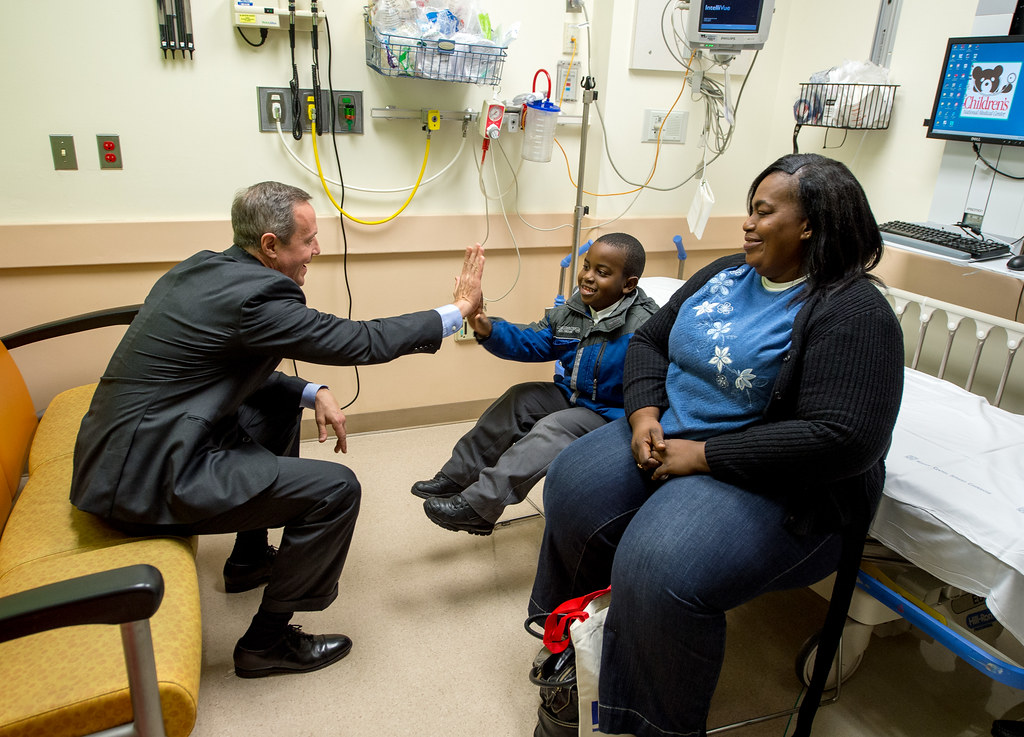
It’s a common experience for almost everyone: that nagging stomachache, a fleeting bout of indigestion, or the temporary discomfort after a particularly indulgent meal. Our gastrointestinal systems, as Dr. Daniel Joyce, a general surgeon, aptly puts it, are “quite fickle sometimes.” This everyday familiarity with minor digestive woes often leads us to dismiss more subtle signals our bodies might be sending, potentially overlooking crucial early warning signs of more serious conditions like stomach cancer. The challenge lies in discerning the usual suspects from the truly concerning.
Stomach cancer, medically known as gastric cancer, affects the stomach, a vital organ in the upper abdomen responsible for digesting the food we eat. While most people experience vague symptoms that can easily be confused with other benign gastrointestinal disorders, it’s precisely this ambiguity that makes stomach cancer a tricky diagnosis. The unfortunate reality is that by the time stomach cancer is finally diagnosed, it’s often in advanced stages, primarily because early symptoms are so unremarkable they go completely unnoticed, or are simply dismissed as typical GI issues. Understanding these initial, often-missed indicators is not just about awareness; it’s about empowering yourself with knowledge that could lead to life-saving early detection.
Remarkably, over the last decade, doctors have observed a decline in stomach cancer cases, with the American Cancer Society reporting it accounts for only about 1.5% of all new cancers diagnosed in the United States each year. This positive trend is largely attributed to earlier diagnosis and treatment of Helicobacter pylori (H. pylori) infections, a bacterium known to cause chronic stomach lining inflammation and ulcers, and considered a major cause of stomach cancer. Dr. Joyce explains, “Now that we’re making the diagnosis of H. pylori earlier when patients get symptoms, they’re treated with antibiotics, the infection is eradicated and the overall risk of stomach cancer is decreased.” However, a particular type of stomach cancer, gastroesophageal junction adenocarcinoma, which begins in the esophagus where it connects to the stomach, is on the rise. This increase is linked to the growing issue of obesity in the U.S., leading to more acid reflux and a condition called Barrett’s esophagus, which can ultimately progress to cancer. Given these dynamics, let’s delve into some of the early warning signs you should be vigilant for, signs that could make all the difference.

1. **Bloating**A persistent feeling of fullness and tightness in your stomach can be more than just the aftermath of a big meal; it can be an early indicator of stomach cancer. Dr. Daniel Joyce explains that stomach cancer has the potential to make the wall of your stomach incredibly rigid, significantly reducing its natural capacity to store food. This physical change can lead to a sensation of being constantly full or overly distended, even after consuming very little.
In more advanced scenarios, especially when stomach cancer spreads to the lining of the abdomen, it can cause an accumulation of fluid within the abdominal cavity. This condition, known as ascites, can lead to excessive bloating, to the point where, as Dr. Joyce vividly describes, you “might look like you’re nine months pregnant.” Therefore, if bloating becomes a frequent, uncomfortable, and inexplicable companion, it warrants a closer look by a medical professional.
Read more about: Beyond Chest Pain: 10 Key Symptoms Men Should Never Ignore

2. **Heartburn**Heartburn is a universally common complaint, often experienced after enjoying spicy foods or rich, heavy meals. That burning sensation in your upper chest and throat usually subsides with over-the-counter antacids or a bit of time. Dr. Joyce confirms that for most people, heartburn is not typically a cause for concern.
However, there’s a critical distinction to be made: prolonged heartburn that simply doesn’t respond to antacids or other standard medications should raise a red flag. If a significant cancer growth is situated at the stomach’s exit point, it can obstruct the normal passage of food and fluid. When this happens, fluid can accumulate, and “the path of least resistance can be back up the food pipe/esophagus,” causing persistent and unresponsive heartburn. This is a scenario where benign heartburn transforms into a symptom that demands medical attention.
Read more about: Beyond Chest Pain: 10 Key Symptoms Men Should Never Ignore

3. **Nausea and Vomiting**Experiencing nausea and vomiting is an unpleasant ordeal, and when these symptoms become frequent or severe, they can be a critical sign that something is amiss within your digestive system. This is particularly true if the feeling stems from a growth that begins to block the exit point of your stomach. When such an obstruction occurs, the foods and liquids you consume struggle to make their way into your duodenum, which is the initial segment of your intestine.
As Dr. Joyce explains, “When you eat food, it has nowhere to go.” This mechanical blockage sends powerful signals to your brain, triggering the uncomfortable sensation of nausea and potentially leading to vomiting. In severe cases, particularly associated with advanced disease, this blockage can manifest in dramatic ways. For instance, if you find yourself unable to keep anything down, or if you vomit and notice something you consumed days ago, it suggests a significant obstruction that requires immediate medical evaluation, potentially even an emergency room visit.
Read more about: Exploring the Science of Suffering: Understanding 9 Painful Ways to Die

4. **A General Feeling of Discomfort**Sometimes, the earliest and most elusive warning sign of stomach cancer isn’t a specific, sharp pain, but rather a pervasive sense that “something is off.” This vague discomfort often settles in the upper abdomen, above the navel, and can be difficult to pinpoint or describe. It’s more than just a passing unease; it’s a persistent feeling that your body isn’t quite right, a gnawing sensation that suggests an underlying issue.
Dr. Joyce indicates that this general feeling of discomfort can frequently be attributed to stomach cancer spreading to the lining of your abdomen, a condition that can also lead to fluid accumulation. Consequently, this discomfort can manifest similarly to bloating, often accompanied by a sensation that your belly feels unusually heavy. While easily dismissed as minor indigestion or stress, a persistent and unexplained general abdominal discomfort should prompt a conversation with your healthcare provider.
Read more about: So, You Walked Out of a Restaurant: Unpacking the Legal, Ethical, and Awkward Realities of an Unpaid Tab

5. **Unexpected Weight Loss**Unintentional weight loss stands out as one of the most concerning and significant symptoms associated with stomach cancer. This isn’t about shedding a few pounds from a new diet or exercise routine; it’s about a noticeable decline in weight without any conscious effort to do so. The mechanisms behind this weight loss are often directly linked to other emerging symptoms of the disease.
For instance, if you are experiencing persistent nausea, frequent vomiting, or chronic bloating, you may naturally find yourself eating less often simply to avoid the accompanying discomfort or sickness. As Dr. Joyce points out, “People no longer feel hungry and ultimately start losing weight without trying.” This lack of appetite, coupled with the body’s struggle to absorb nutrients efficiently due to the cancer, can lead to a rapid and alarming decrease in body mass. Indeed, Dr. Joyce emphasizes, “That’s probably the most concerning symptom,” underscoring its importance as a clear signal that something serious may be happening within your body.
Read more about: From Hollywood to Holywood: 14 Celebs Who Are Unapologetically Born-Again Christians (Their Stories Might Just Shock You)

6. **Fatigue**Fatigue is a common complaint in our busy lives, often dismissed as a consequence of stress, lack of sleep, or an overloaded schedule. However, when fatigue becomes profound, relentless, and doesn’t improve with rest, it can be a critical warning sign, especially when coupled with other symptoms like unexpected weight loss. Dr. Joyce highlights that this debilitating tiredness can stem from slow blood loss, which is a potential complication of stomach cancer.
Such blood loss, even if it’s minimal and goes unnoticed in your stool, can gradually lead to anemia – a condition characterized by a low red blood cell count. Red blood cells are vital for carrying oxygen throughout your body, and a deficiency can result in profound exhaustion, shortness of breath, and dizziness. Real-life experiences underscore this symptom’s severity. Sylvia Coe, a retired art gallery director, initially attributed her fatigue, shortness of breath, and dizziness to stress, only realizing the gravity of the situation when she swooned in a restaurant. Similarly, Ralph Lilja, a rancher and realtor, found fatigue to be the ultimate motivator for seeking medical help, discovering he was anemic due to a bleeding tumor, a condition that significantly improved once transfusions were administered. These powerful personal accounts emphasize the importance of listening to your body when fatigue becomes an overwhelming presence.
Read more about: Beyond the Iconic M1911: A Guide to Today’s Top .45 ACP Pistols

7. **Feeling Full Quickly (Early Satiety)**Imagine sitting down for a meal, only to feel completely full after just a few bites, even if you’ve barely touched your plate. This phenomenon, clinically known as “early satiety,” is a distinct and often troubling symptom of stomach cancer. It signifies an inability to consume an entire meal, or even a substantial portion of it, without experiencing an overwhelming sensation of fullness or discomfort. Unlike simply having a small appetite, this feeling is disproportionate to the amount of food eaten.
Dr. Joyce provides a stark example of this experience, noting that a person might “only be able to eat 20% of what you would normally eat” before feeling completely satisfied or uncomfortably full. This sensation is often due to the cancer affecting the stomach’s capacity. As stomach cancer grows, it can make the stomach wall more rigid or fill the space within the stomach, physically reducing its ability to expand and hold food. When this happens, the stomach reaches its limited capacity much faster than usual, triggering the sensation of fullness prematurely. If you consistently find yourself unable to finish meals you once enjoyed, or feel full after consuming very small amounts, it’s a symptom that warrants immediate medical review. This inability to eat adequately can also contribute to the concerning unexpected weight loss discussed earlier, forming a concerning cluster of symptoms.
As we continue to navigate the subtle landscape of stomach cancer’s early warning signs, it becomes clear that vigilance and a keen awareness of your body are paramount. While the initial symptoms can often be vague and easily dismissed, recognizing a pattern of persistence or an unusual combination of discomforts can be life-saving. Beyond the initial signs we’ve discussed, there are several other critical indicators and factors to understand that can further empower you in safeguarding your health. Let’s delve into seven more crucial symptoms and then explore the broader context of risk factors, diagnostic approaches, and proactive strategies for prevention and treatment.

8. **Trouble Swallowing (Dysphagia)**Experiencing difficulty or pain when swallowing, a condition medically termed dysphagia, is a symptom that warrants immediate attention. While many factors can cause this, when it comes to stomach cancer, it can indicate a significant obstruction within your esophagus or at the gastroesophageal junction—the point where your esophagus meets your stomach. Food and liquids struggle to pass normally, leading to sensations of food getting “stuck” or a feeling of pressure.
Dr. Bassam Sonbol, an oncologist at Mayo Clinic, explicitly lists “difficulty swallowing” as one of the ways stomach cancer can present itself. This symptom can be particularly distressing and may worsen over time, making it increasingly difficult to consume adequate nutrition. If you find yourself consistently struggling to swallow or experiencing pain during swallowing, it’s a clear signal your body is sending that demands prompt medical evaluation.
It’s important not to dismiss this as just a temporary discomfort, especially if it persists. A medical professional can accurately assess the cause and determine if it is indeed linked to a tumor or another serious underlying condition. Early investigation can lead to timely diagnosis and intervention, which is crucial for conditions like stomach cancer.

9. **Blood in Your Stool or Vomit**This symptom is a definitive red flag that requires immediate medical attention. Noticing blood in your stool, which is often described as looking black or tarry, and smelling like steel or metal (a condition known as melena), or vomiting blood, is a serious indicator of internal bleeding. Even small amounts of blood in vomit are considered too much and should not be ignored.
While this symptom is less common in early stages, it can occur if a tumor is bleeding slowly. Dr. Daniel Joyce explains that “If it’s a very slow bleed, you may not notice anything in your stool.” However, significant bleeding can produce very noticeable changes. Dr. Paul Mansfield, a surgical oncologist specializing in stomach cancer, emphasizes the urgency: “Any amount [of vomiting blood] is considered too much.”
These are not symptoms to self-diagnose or wait out. If you experience either bloody stools or vomiting blood, it suggests a significant issue within your digestive tract that could be caused by stomach cancer or another serious condition. Seeking emergency medical help is crucial for proper diagnosis and intervention.
Read more about: Exploring the Science of Suffering: Understanding 9 Painful Ways to Die

10. **Persistent Abdominal Pain**While a general feeling of discomfort was discussed as an early sign, persistent or severe abdominal pain takes on a different level of concern. This isn’t the fleeting ache of indigestion, but a burning, gnawing, or sharp pain that settles in the upper abdomen, often above the navel, and simply won’t go away. Patients often describe it as a constant presence rather than an intermittent discomfort.
Janine Somma, a stay-at-home mom diagnosed with early-stage stomach cancer at 28, recalled, “I started having a burning, gnawing pain in the center of my stomach.” Similarly, Erica Hunkin, diagnosed at 35, experienced “really weird abdominal pains that stretched up and across my chest,” which she initially mistook for heart-related issues. This type of pain often indicates the cancer is growing or affecting surrounding tissues.
Dr. Mansfield advises that “Anything that changes and persists is usually something to get checked out, especially if it lasts for more than two or three weeks.” If you are experiencing abdominal pain that ranks as an “8,” “9,” or higher on a scale of 1 to 10, it is considered severe and warrants immediate medical attention.
Read more about: Exploring the Science of Suffering: Understanding 9 Painful Ways to Die

11. **Persistent Indigestion**Indigestion, much like heartburn, is a widespread complaint that most people experience occasionally. It can manifest as a feeling of fullness, bloating, or an uncomfortable burning sensation in the upper abdomen after eating. Typically, it resolves on its own or with over-the-counter remedies.
However, when indigestion becomes persistent, chronic, and does not respond to conventional treatments, it moves beyond being a minor inconvenience and becomes a potential warning sign. Stomach cancer can cause these vague symptoms because it interferes with the normal digestive processes, making the stomach less efficient or causing irritation.
Dr. Bassam Sonbol includes indigestion among the potential presentations of stomach cancer. If you find yourself constantly battling indigestion that feels different, more severe, or simply won’t subside despite lifestyle adjustments or common medications, it’s a signal that your body requires further investigation. Such persistent symptoms should prompt a conversation with your healthcare provider.
Read more about: Beyond Chest Pain: 10 Key Symptoms Men Should Never Ignore

12. **Burping (Frequent or Excessive)**While burping is a natural bodily function to release excess air from the stomach, unusually frequent or excessive burping can sometimes be a subtle, yet notable, symptom of stomach cancer. This symptom is less commonly highlighted but is listed among the signs of both early and advanced stage gastric cancer.
In some cases, a tumor can affect the normal functioning of the stomach or its exit point, leading to an accumulation of air or disrupted digestive processes that result in increased burping. Craig Galati, an architect diagnosed with stage III stomach cancer, recalled developing “this really weird hiccup when I’d eat too much or too quickly,” which was ultimately linked to a tumor near the top of his stomach.
While occasional burping is normal, if you notice a significant and unexplained increase in how often or how vigorously you are burping, especially in conjunction with other digestive symptoms, it’s worth mentioning to your doctor. It can be a minor but contributing piece of the puzzle that helps your doctor understand your overall health picture.

13. **Anemia and Weakness**Fatigue was discussed earlier as a concerning symptom, often linked to slow blood loss from a tumor. This slow blood loss can lead to anemia, a condition where your body lacks enough healthy red blood cells to carry adequate oxygen to your tissues. Anemia, in turn, manifests as profound and unrelenting weakness that doesn’t improve with rest, alongside other symptoms like shortness of breath and dizziness.
Sylvia Coe, a retired art gallery director, initially dismissed her fatigue, shortness of breath, and dizziness as stress until she “swooned in a restaurant,” revealing a heavily bleeding tumor. Ralph Lilja, a rancher, found that fatigue was his ultimate motivator for seeking medical help, discovering he was anemic due to a bleeding tumor and feeling significantly better after transfusions.
Anemia and the resulting weakness are not merely about feeling tired; they signify that your body is not getting enough oxygen, which can severely impact your daily life and overall health. If you experience persistent, unexplained weakness or symptoms of anemia, it’s a critical indicator that warrants immediate medical evaluation to identify the underlying cause.

14. **Jaundice (Yellow Skin or Eyes)**Jaundice is a distinctly alarming symptom characterized by a yellow tint to your skin or the whites of your eyes. This condition occurs when there is an excess of bilirubin—a yellow pigment formed from the breakdown of red blood cells—in your blood. While jaundice has various causes, when associated with stomach cancer, it is typically a sign that the cancer has spread beyond the stomach.
Specifically, if stomach cancer has metastasized to the liver, jaundice may develop because the liver’s ability to process bilirubin is impaired. The context explicitly states, “If stomach cancer has spread to the liver you may have pain on the right side of your abdomen. You also may get jaundice, a yellow tint to the skin or the whites of the eyes.”
Jaundice is a sign of advanced, stage 4 gastric cancer, indicating that the disease has spread to other parts of the body. It is a serious symptom that requires urgent medical attention to assess the extent of the cancer and determine appropriate management and treatment strategies.

**How to Tell if Your Symptoms are Serious and When to See a Doctor**
It’s natural to feel concerned when experiencing any of these symptoms, but it’s crucial to remember that “Most of the time, these symptoms are caused by something else,” as Dr. Daniel Joyce reassures. Common gastrointestinal conditions like GERD, gastritis, or peptic ulcers can mimic many of these signs. However, the key differentiator is persistence and severity.
Dr. Paul Mansfield advises, “Anything that changes and persists is usually something to get checked out, especially if it lasts for more than two or three weeks.” If you experience a cluster of symptoms such as persistent nausea, bloating, unexplained weight loss, and a significant lack of appetite, Dr. Joyce recommends seeing your doctor for testing. Furthermore, specific red-flag symptoms like vomiting blood, black or tarry stools, or severe abdominal pain (ranking 8 or higher on a 1-10 scale) necessitate immediate medical attention, potentially even an emergency room visit if you cannot keep anything down or vomit food consumed days ago.
**Understanding Risk Factors for Stomach Cancer**
While a single cause for stomach cancer isn’t identified, several factors can increase your risk, and being aware of them can empower you to take proactive steps. Some risk factors are modifiable, while others are not. Age is a significant factor, with risk increasing as you get older, typically affecting those in their 60s or 70s, though it’s important to be vigilant for adults over 55. Men have a slightly higher lifetime risk of developing stomach cancer compared to women. Additionally, being of Asian, South American, or Belarusian descent can increase your risk.
Genetics play a role; having a family history of stomach cancer is a notable risk factor. Medical history also matters, particularly long-term stomach inflammation, prior stomach surgery, or conditions like pernicious anemia (a vitamin deficiency). The presence of other tumors elsewhere in the gastrointestinal tract, stomach polyps (abnormal tissue growth in the stomach lining), or chronic gastroesophageal reflux disease (GERD) and its progression to Barrett’s esophagus are also linked to higher risk, especially for gastroesophageal junction adenocarcinoma.
Perhaps one of the most significant modifiable risk factors is infection with Helicobacter pylori (H. pylori), a common bacterium known to cause chronic stomach lining inflammation and ulcers, and considered a major cause of stomach cancer. Lifestyle choices also have a profound impact, including smoking, obesity, and a diet high in smoked foods, salted fish, and cured meats, and low in fruits and vegetables.
**Diagnostic Pathways: Uncovering the Truth**
When you approach your doctor with concerning symptoms, they will conduct a comprehensive evaluation, including asking about your medical and family history. If further investigation is deemed necessary, a range of diagnostic tests are available to accurately identify and stage stomach cancer, ensuring you receive the most appropriate care.
One of the primary diagnostic tools is an **upper endoscopy**. During this procedure, a thin tube with a tiny camera attached is gently inserted through your mouth and into your stomach, allowing the doctor to visually inspect your esophagus, stomach, and the first part of your small intestine. If any suspicious areas are found, a **biopsy**, or tissue sample, will be taken for microscopic analysis by a pathologist. Dr. Sonbol explains this crucial step: “If your doctor finds something suspicious, they remove some tissue for a biopsy, where the cells gets sent to a lab for further analysis.”
To determine the extent or stage of the cancer, your doctor may recommend additional imaging tests. An **endoscopic ultrasound** involves placing a thin tube with an ultrasound probe in your stomach through your mouth, providing a visual of your stomach and nearby blood vessels to assess tumor depth and spread. **CT scans or MRIs** can detect larger tumors and assess spread to distant organs, while a **Positron Emission Tomography (PET) scan** uses a radioactive sugar tracer to illuminate cancer cells, as they use more sugar than healthy cells. In some cases, a **laparoscopic surgery**, where a special camera is inserted directly into the abdomen, may be performed for a more direct visual assessment of cancer spread.
**Proactive Steps: Prevention and Treatment Strategies**
Taking proactive steps to lower your risk of stomach cancer involves mindful lifestyle choices. As Dr. Daniel Joyce advises, “As a society, we eat a lot of processed and unhealthy foods… We really need to shift back to a cleaner, mostly plant-based diet.” He emphasizes that data supports a diet rich in fresh vegetables, minimal fruit, and minimal meat, especially processed meat. Avoiding these “toxic foods” can not only decrease cancer risk but also alleviate digestive symptoms. Being physically active, maintaining a healthy weight, cooking and storing food properly, and avoiding alcohol abuse and smoking are all vital preventive measures.
If stomach cancer is diagnosed, a multidisciplinary team of specialists, including gastroenterologists, surgical oncologists, medical oncologists, and radiation oncologists, will collaborate to create the best treatment plan for your overall health and personal well-being. Treatment options vary depending on the type and stage of cancer, its location, and individual patient needs.
Possible treatments include **surgery** to remove cancerous tissue, often combined with some surrounding healthy tissue. **Chemotherapy** uses drugs to destroy cancer cells throughout the body, while **radiation therapy** employs high-energy X-rays to target and eliminate cancer cells. Newer options like **targeted therapy** focus on blocking specific weaknesses within cancer cells, and **immunotherapy** helps your body’s own immune system recognize and attack cancer cells. Dr. Joyce notes that for very early gastric cancers, endoscopic treatment is sometimes possible, though rare in the U.S. He adds, “There’s significant potential for spread of cancer to other areas, so we often recommend chemotherapy before proceeding with a surgery.”
While the journey can be overwhelming, early detection significantly increases the likelihood of successful treatment. Listening to your body, seeking timely medical advice for persistent or alarming symptoms, and understanding your risk factors are powerful tools in managing your health. Most gastrointestinal symptoms are benign, but staying informed and proactive is your best defense against serious conditions like stomach cancer. Your health is your greatest asset, and being attuned to its subtle signals is the first step in protecting it.



